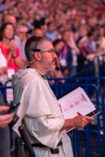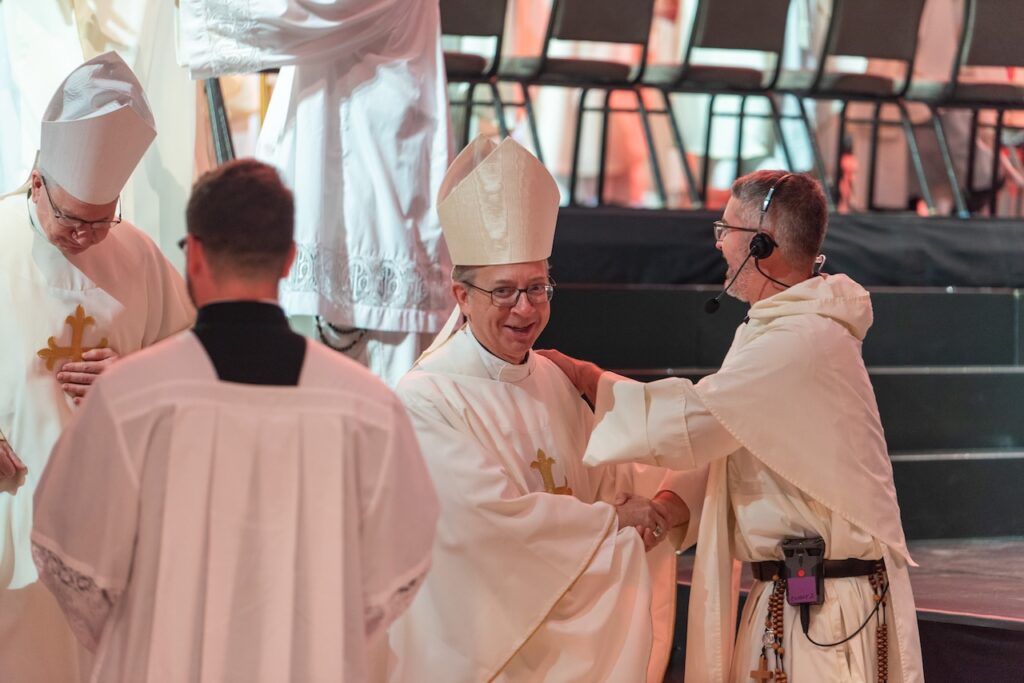Dominican Father Joseph-Anthony Kress had an important role in the liturgies of the National Eucharistic Congress. He is the parochial vicar at St. Thomas Aquinas, Charlottesville, and chaplain for the University of Virginia Catholic Campus Ministry, the Catholic Hoos.
In the months leading up to the congress, Father Kress worked as part of the event’s Liturgical Commission, planning all of the liturgical logistics. Eighteen liturgies were held over the course of five days, sometimes with three to five liturgies happening simultaneously.

The work included securing about 800 sacred vessels – a combination of chalices, patens, and ciboria – for all of the celebrations of Mass. Father Kress said many liturgical supply companies were generous in donating altar cloths made specifically for the congress.
He emphasized that the priority for the Liturgical Commission was to uphold a high liturgical standard despite the non-traditional spaces. Masses were held each day in Lucas Oil Stadium.
Ahead of the congress, he said, “We are radically confident in the liturgy that the Church has given to us as a gift. We don’t have to innovate – we just have to adapt the sacred liturgy to a non-sacred environment.”
The commission also helped plan Eucharistic adoration during nightly Revival sessions and the massive Eucharistic procession throughout downtown Indianapolis on Saturday.
In an April 30 interview, Father Kress said, “My role is to be radically distracted the entire time, so that the attendees can pray and encounter God in the liturgy. I take very seriously that my role is to not be present – to not be in those moments – so the attendees can pray.”

